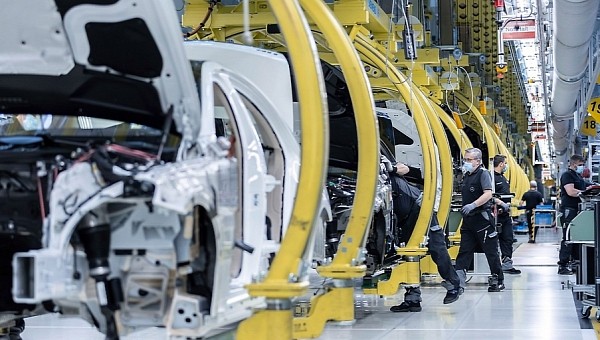The chip shortage is already easing off, with carmakers claiming that the global semiconductor shortage is slowly but surely improving.
On the other hand, after two years of struggle, it’s no surprise that everybody in the industry is handling this potential recovery with extra care. With some experts warning that a new crisis could follow in the summer of the year, and with both the price of materials and inflation rising fast, carmakers have no reason to celebrate just yet.
But according to Taiwan Semiconductor Manufacturing Co., mostly known as TSMC, executives in the automotive industry should at least be more optimistic.
Speaking with analysts as part of a conference call, the company’s CEO C. C. Wei explained the orders for car manufacturers are gaining traction these days, with the supply to improve substantially in the short term. In other words, more chips are now being shipped to carmakers, and TSMC believes the whole thing would gain even more pace in the coming months.
As a result, Wei said, the shortage could soon become less of a concern for car manufacturers, with auto shipments very likely to grow substantially this year.
It’s not hard to be overexcited when hearing the world’s number one chipmaker that the semiconductor shortage could come to an end in less than 12 months, but on the other hand, analysts warn that the highly dynamic market and the uncertainty surrounding the supply chain still makes it impossible to anticipate the end of the crunch.
Indeed, carmakers themselves don’t seem too optimistic that the end of the shortage is on the radar just yet.
Not a long time ago, GM’s CEO Mary Barra said the constrained chip inventory would continue to impact its production power across the world in 2023, suggesting that similar problems could continue to cause similar struggles even beyond this year. Similar forecasts have also been released by other carmakers, all of which anticipate a challenged semiconductor supply chain in the short term.
On the other hand, tech company Intel has previously estimated that the chip shortage would continue to hurt the automotive industry in one way or another until 2024. More pessimistic forecasts from other market intelligence firms pointed to a horrible scenario, as some believed the semiconductor inventory could remain constrained until 2027.
At this point, however, while the chip shortage isn’t entirely over, the slow recovery that the industry continues to see at least allows carmakers to run at a normal pace, without the need for temporary production halts or building vehicles without certain systems. Most carmakers have already equipped their unfinished vehicles with all the missing equipment, so right now, almost everybody seems to be working particularly on addressing the ridiculously long waiting times for new cars.
But according to Taiwan Semiconductor Manufacturing Co., mostly known as TSMC, executives in the automotive industry should at least be more optimistic.
Speaking with analysts as part of a conference call, the company’s CEO C. C. Wei explained the orders for car manufacturers are gaining traction these days, with the supply to improve substantially in the short term. In other words, more chips are now being shipped to carmakers, and TSMC believes the whole thing would gain even more pace in the coming months.
As a result, Wei said, the shortage could soon become less of a concern for car manufacturers, with auto shipments very likely to grow substantially this year.
It’s not hard to be overexcited when hearing the world’s number one chipmaker that the semiconductor shortage could come to an end in less than 12 months, but on the other hand, analysts warn that the highly dynamic market and the uncertainty surrounding the supply chain still makes it impossible to anticipate the end of the crunch.
Indeed, carmakers themselves don’t seem too optimistic that the end of the shortage is on the radar just yet.
Not a long time ago, GM’s CEO Mary Barra said the constrained chip inventory would continue to impact its production power across the world in 2023, suggesting that similar problems could continue to cause similar struggles even beyond this year. Similar forecasts have also been released by other carmakers, all of which anticipate a challenged semiconductor supply chain in the short term.
On the other hand, tech company Intel has previously estimated that the chip shortage would continue to hurt the automotive industry in one way or another until 2024. More pessimistic forecasts from other market intelligence firms pointed to a horrible scenario, as some believed the semiconductor inventory could remain constrained until 2027.
At this point, however, while the chip shortage isn’t entirely over, the slow recovery that the industry continues to see at least allows carmakers to run at a normal pace, without the need for temporary production halts or building vehicles without certain systems. Most carmakers have already equipped their unfinished vehicles with all the missing equipment, so right now, almost everybody seems to be working particularly on addressing the ridiculously long waiting times for new cars.






